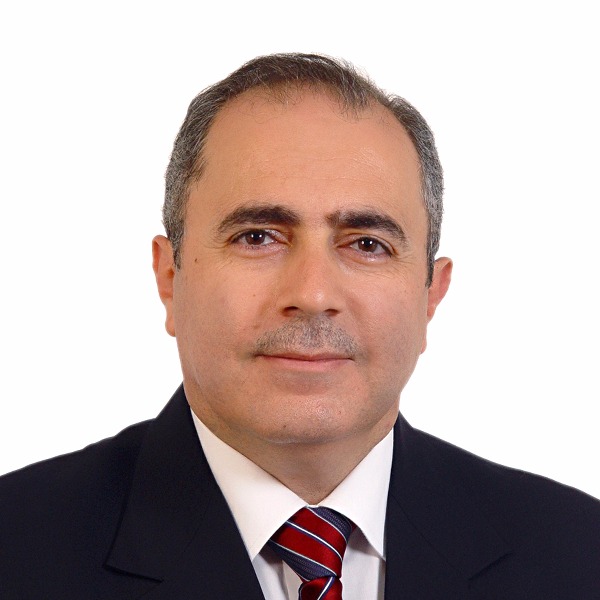
Bassam Saeed ,
M.D.(Damascus), F.R.C.P. (Edinburgh). DIS (Paris) DIU (Lyon)
Consultant Pediatric Nephrologist at Farah Association for Child with kidney disease in Syria
President and Founder of Farah Association for Child with Kidney Disease in Syria since 2013
Deputy chair of the Middle East Regional board of ISN 2023 - 2025
Past president of the Middle East Society for Organ Transplantation MESOT from 2018-2020.
Founder of Pediatric nephrology fellowship program in Syria in Nov. 2003
Founder of Pediatric Nephrology Department & Pediatric Dialysis Unit & pediatric Kidney transplant program at Surgical Kidney Hospital / Damascus since February 2002
I have served on MESOT since 2004, as Councilor and Region representative, treasurer, secretary and president.
Representative the Middle East Region on the ISN Continuing Medical Education Committee 2022- 2024
Representative of Syria on the ISN Middle East regional board since 2013 to date.
Member of the Declaration of Istanbul Custodian Group (DICG)
Member of the Honorary Committee of the Advanced International Training Course in Transplant Procurement Management. TPM-DTI Foundation. Barcelona – Spain
Founding member of the World Academy of Medical, Biomedical, and Ethical Sciences
Country Liaison representing Syria in The Transplantation Society (TTS).
Regional Representative of the Middle East/Africa region in the KDIGO
Associate Editor of Experimental and Clinical Transplantation (ECT) Journal.
Founder of the MESOT Fellowship Program
Editorial Board member and reviewer in many journals
I have received numerous AWARDS from several institutions and Societies. including one from the Transplantation Society TTS as emerging economy countries award in Buenos Aires Argentina during TTS Congress 2022 for my research entitled "Rabies acquired through kidney Transplantation in a Child.
Publications: 56 published papers in peer reviewed journals most of them are accessible through the following link to profile on research gate: https://www.researchgate.net/profile/Bassam_Saeed3
Pediatric kidney transplantation in the Middle East: Challenges and solutions
Bassam Saeed1.
1Pediatric Nephrology, Farah Association for Child with kidney disease in Syria, Damascus, Syrian Arab Republic
Pediatric kidney transplantation (PKT) is the best option for treating children with end-stage renal disease (ESRD). The major challenge in the Middle East (ME) countries is to provide optimal treatment to children with ESRD. Poor economics, paucity of renal replacement therapy (RRT) and transplantation facilities in the government sector and high costs in private sector render majority of children disfranchised from RRT and transplantation. Transplantation in the ME is shaped by the prevailing religious socioeconomic and health indicators. Living organ donation is the most widely practiced type of donation. However, some countries like Iran, Turkey, Kuwait, and Saudi Arabia already have their well-established deceased donation programs. Epidemiological information from the ME on the pediatric ESRD and PKT is very scant. Overall kidney transplantation rates are low in developing countries mainly due to economic and paucity of facilities. In children, rates are largely unknown and where reported are low, <0.1 per million child population (pmcp) in Pakistan and 4– 5 pmcp in Kuwait. Most reports are single center experiences except few multicenter reports. The kidney graft survival in some ME centers who published their data was 88-92% at one year, 67-89% at five year, and 50-83% at 10 years post-transplant. Most of these figures are quite comparable to western data. In developed countries PKT has become a routinely successful procedure where 1- and 5- year graft survival rates are 93% and 77% from deceased donors and 95% and 85% from living donors. Low health spending, poorly developed infrastructures, delayed referral of children with chronic kidney disease, com-morbidities, lacking technical expertise, inadequate pediatric dialysis programs, extended dialysis time, organ shortage, commercial transplantation, and post-transplant infections are the main pre and post-transplant challenges. The community-government partnership model has shown that pediatric RRT and transplantation can be successfully established in a developing country including many of ME countries. Society can be motivated to accept transplantation as the therapy of choice for ESRD provided the outcomes are good and it is available ‘‘free of cost’’ to all who need it In this report we present an overview of PRT in ME countries. It highlights the challenges encountered and their solutions for establishing a successful and viable pediatric transplant program in low resource. Conclusion: Although PKT is active in many parts of the ME, it is still inactive in others and mostly relying on living donors. The lacking deceased programs in most ME countries is a main issue to be addressed to adequately responding to the increasing demand for organs
